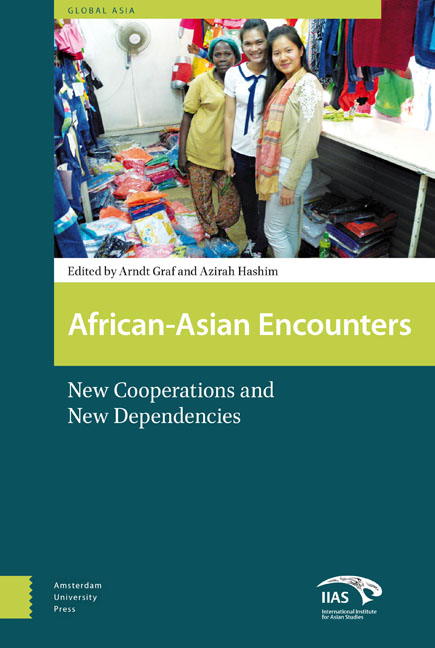2 - The Perceptions of Local Stakeholders of the Preponderance of Asians in Artisanal and Small-Scale Mining (ASM) in Cameroon
Published online by Cambridge University Press: 28 January 2021
Summary
Introduction and Objectives
Gold mining in Africa has a long pre-colonial history. The Kingdoms of Ghana and Mali were well-known for gold exploration and processing. Iron and copper were extracted all over the continent, inducing technological change and transformation within African traditions over two and a half millennia. These early mining operations in Africa have been largely ignored by the Western world (Humphris 2010). Today, African countries account for 20% of the annual gold production (2400 million tons). Africa's largest gold producer, the Republic of South Africa (SA), is responsible for slightly over half of the continent's production and about 10% of the global output (AfDB 2002). SA's production started in 1884 and accounted for approximately a 70% share of the global gold output in 1970 and for 32% of the historical global gold production. South Africa has dominated the gold mining industry for over 125 years. Besides the prominent gold producers (SA, Ghana, Mali, Tanzania), several other African countries, including Cameroon, are involved in gold production (Short and Radebe 2008). Although Cameroon is only a modest contributor to global gold production (about 25 tons), more than 90% of the Cameroonian gold production is not included in official records (Barthélémy 2011). Nowadays, gold production is gaining in importance due to the opening up of the artisanal mining subsector to small mining companies with its corollary of the voluntary monthly declaration of production (République du Cameroun 2014). Since 2004, Asian, Western, and African entrepreneurs have owned part of Cameroon's gold mining business, but local perceptions about their practices have not yet been studied. Presenting some characteristics of Cameroon's mining sector as the entry point, this chapter focuses on how the dominance of Asian stakeholders are being perceived within the ASM subsector in East Cameroon, especially in the mining communities of Bétaré-Oya and Colomine, respectively in Lom and Djérem and Ngoura subdivisions. It is hypothesized that their environmental and social records lead to their being negatively perceived by host communities threatened by the negative effects, arising from an emphasis on realizing quick profits for international investors tolerated by the government of Cameroon.
- Type
- Chapter
- Information
- African-Asian EncountersNew Cooperations and New Dependencies, pp. 47 - 78Publisher: Amsterdam University PressPrint publication year: 2017

